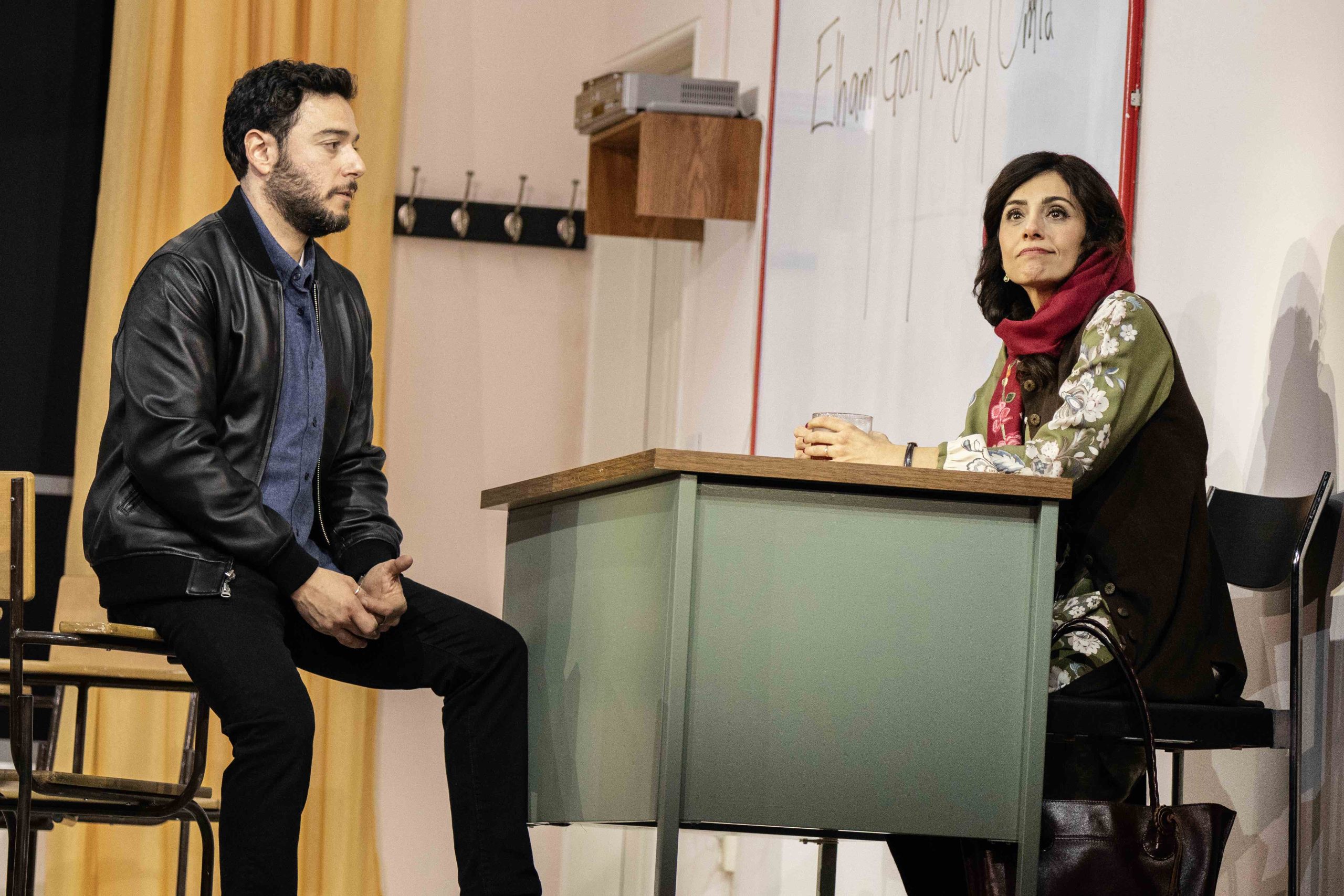
Hadi Tabbal, Drama ’07, Makes Broadway Debut with “English”
Before “English,” a play written by Sanaz Toossi, made its Broadway debut, it had already received rave reviews when it was staged in 2022, and even picked up the 2023 Pulitzer Prize for Drama. Set in an Iranian classroom, the play features four adult students and their teacher as they prepare for the TOEFL exam, and examines the power of language, the personal costs of learning a new language, and what it means to be an immigrant.
When the play premiered at the Roundabout Theatre in January, 2025, it was awarded a Critic’s Pick from The New York Times, and played to packed audiences for its limited run. Hadi Tabbal, Drama ‘07, made his Broadway debut in the role of Omid, who forms a bond with his teacher, played by Marjan Neshat, a faculty member in the School of Drama. The play recently received a Drama League nomination for Outstanding Production of a Play, and Neshat received a nomination for Distinguished Performance.
“The play resonates with audiences and critics because it is universally about language and identity, which is something all of us can identify with,” shares Tabbal. “I think whether you are Middle Eastern or not, whether you are American or the child of immigrants, or an immigrant yourself, whether English is your native tongue or not, we all understand what it means to be who we are when we speak the language we speak. And we all understand what it means, as immigrants, to have to speak the language of the world. I think people, when they see it, who have no relationship to English as a second language, understand what it is to be in the position of power, for lack of a better word.”
Tabbal grew up in Lebanon, and moved to New York City to pursue an MFA in Acting at the School of Drama. He arrived in the United States on a Fulbright scholarship, and considers his time at Drama to be deeply formative.
“I remember my first year acting teacher, Barbara P. was instrumental in helping me understand what it means to experience a part as my own person, which was a new idea to me culturally, and also as an artist,” explains Tabbal. “She helped me open myself up emotionally, and I think the work I did in that first year was extremely important to me, and I remember my last one-on-one meeting with her where I had gone through this huge journey, and she said she had seen students go on this journey, but never this quickly. That meant a lot to me.”
Since graduating from Drama, Tabbal has appeared on a variety of televisions shows, including “The Brave,” where he played Amir Al-Raisani, a Syrian born American operative with the special forces omega team. The role gave Tabbal the chance to play a heroic character, and push back against the stereotypical roles usually given to Muslims.
“English” also gave Tabbal the chance to play a fully developed, complex character who is from the Middle East. Speaking with the entertainment website Gold Derby, Tabbal noted that “To be in this play on Broadway for me is huge. And I think it’s huge for all the other actors because I could have been yet another cardboard character in some play and still been on Broadway. But to play an Iranian with grace and with kindness, and to be able to mirror the experiences of Americans as a Middle Eastern actor in my Broadway debut, truly the stars aligned in a way that is so hard to believe for me.”
Tabbal believes that the play resonated with both critics and audiences because it explores both the losses and gains of learning the English language, and because the story has a well of life underneath the comedic surface.
“It truly is a play that has strived, and is still striving for, excellence. It is beautiful in its execution, it is very subtle in its writing, it is very deep in what’s underneath that subtlety. It is also very elegant, and it defies any expectations or stereotypes about the Middle East.”
He is hopeful that audiences left the show feeling like they had navigated a question they don’t entirely have an answer for, but are turning inward, and reflecting upon their own experiences to wrestle with the themes of the show.
“That is what a really good play does – it allows us to collectively think about ourselves, about others, to feel a bit less lonely.”